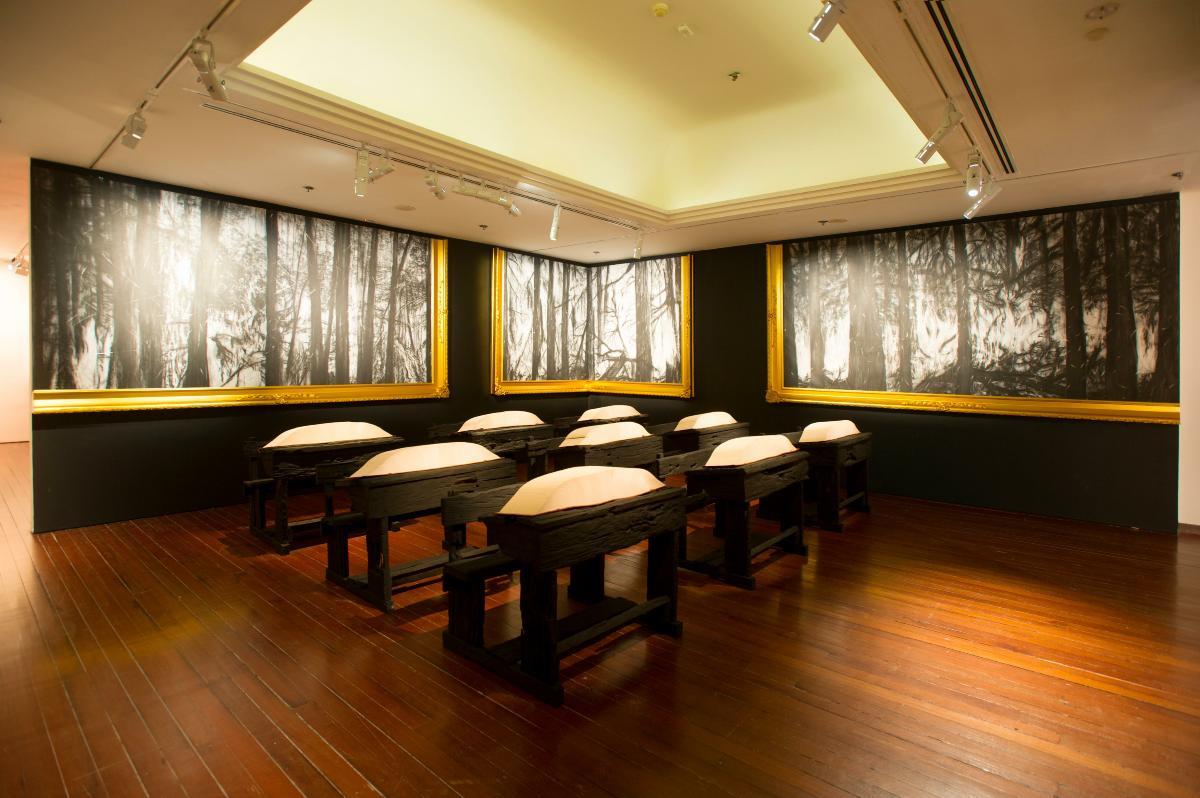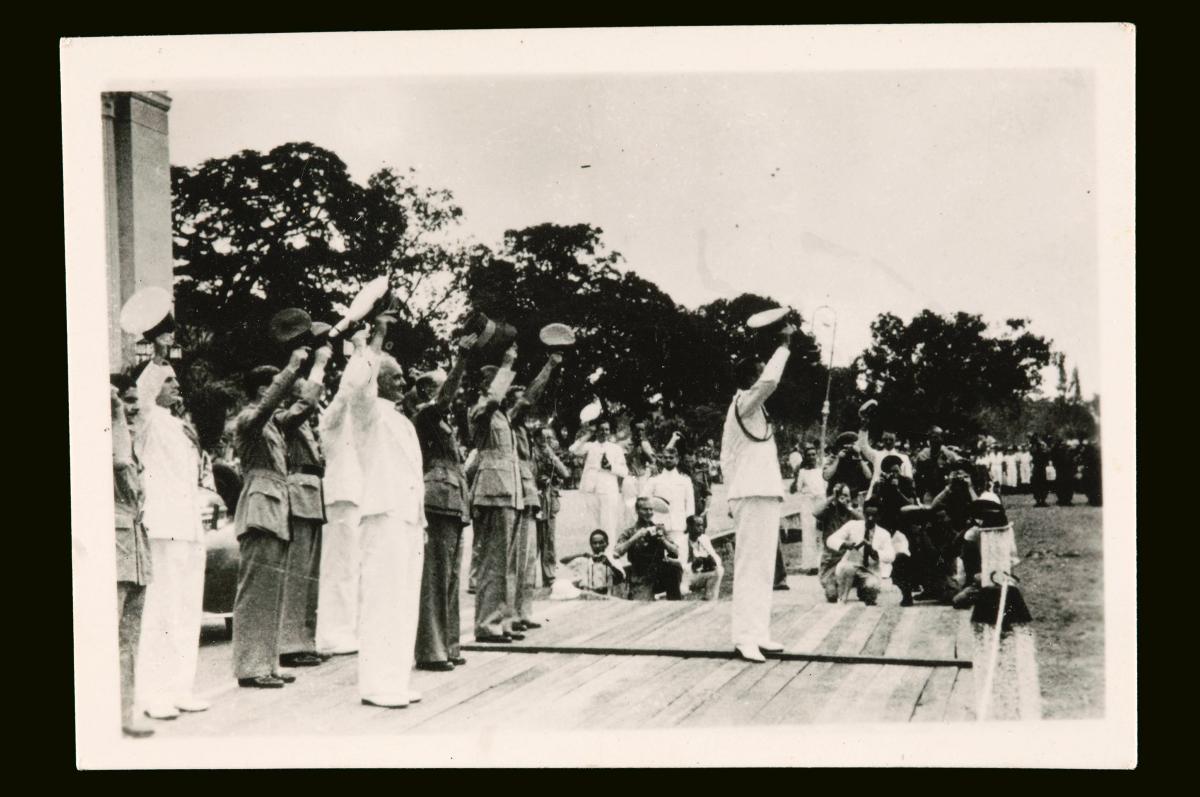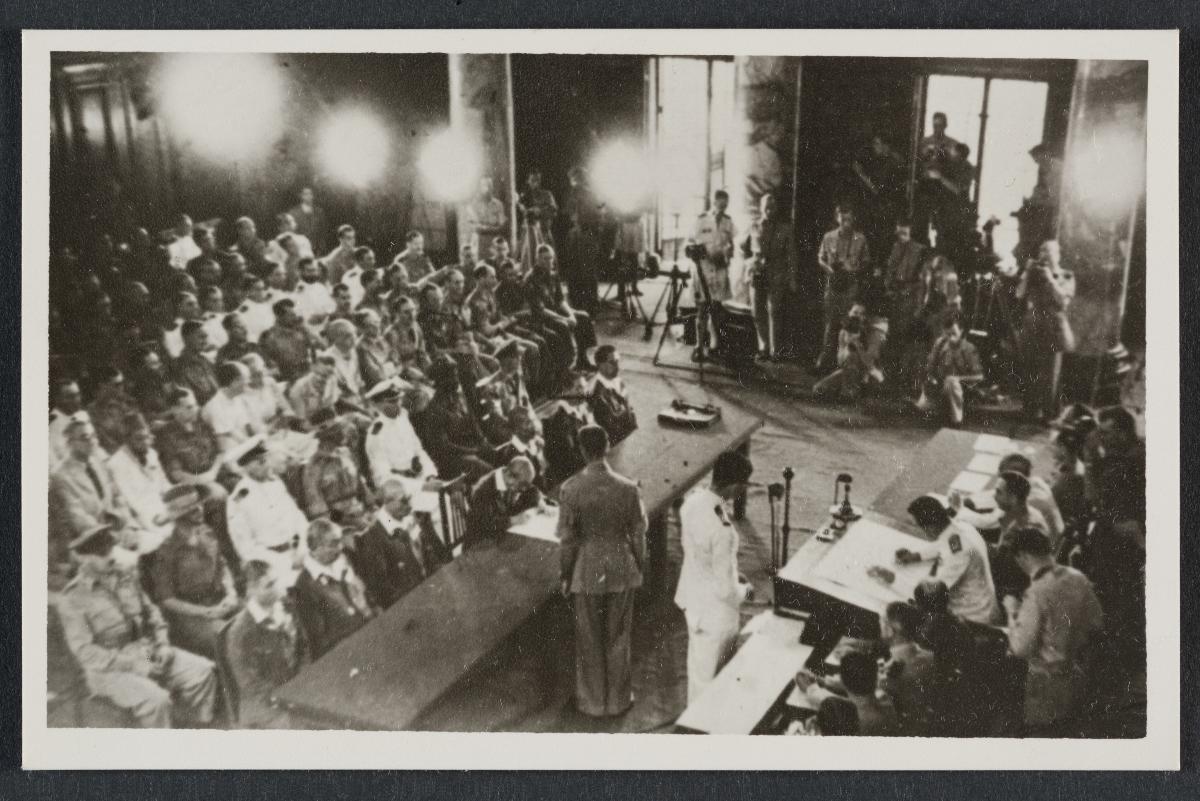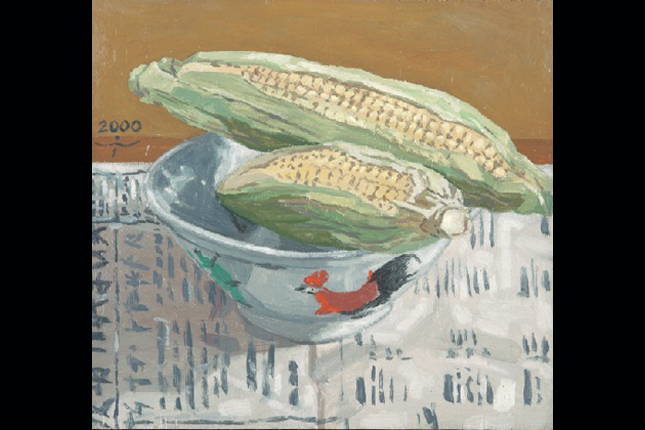The Shadow of Surrender departs significantly from Titarubi’s other work in its absence of figuration, although the presence of the body is implied in the installation which mimics a classroom setting with rows of benches and chairs. In this work, the focus has also shifted from that of a woman’s perspective and position in a society largely governed by strict religious and cultural codes of conduct and gender norms, to a far more encompassing statement about Indonesia’s colonial legacy and the role of culture and education in any civilisation.The installation is an expansion of a single work originally created for the 2011 Jogja Biennale. Comprising a single wooden bench with a large blank book, the 2011 work was titled Bacalah!, a reference to one of Islam’s main tenets, which is to read, or to acquire knowledge. Ironically, the book on the table, while disproportionately huge, is completely blank, suggesting a desire to re-write or to re-learn and re-assess the values and lessons transmitted through culture and religion. In the same way, while Shadow of Surrender intimates at an environment or culture of learning, it is also a tabula rasa, with the audience positioned as an active agent, constructing his or her personal ‘lessons’ and observations while fully aware of the supports on which such learning has traditionally taken place. That the benches supporting the books have been made from wood taken from railroad tracks that previously transported commodities such as sugar during the difficult years under foreign rule is significant, as it suggests a painful consciousness and awareness of the country’s history, and the fact that many of its institutions of learning and government are products of a colonial construct and legacy. The charcoal drawings of trees in the background echo the charred wooden benches; their abruptly truncated edges suggest a flowering or growth cut off in its prime.


















